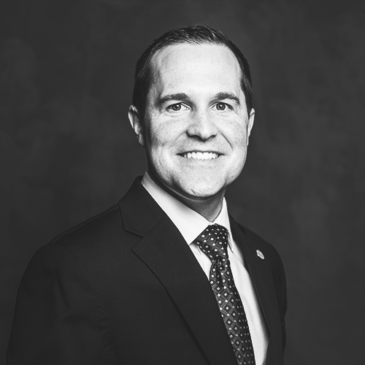Andrew Quagliata is a Senior Lecturer in Management Communication at Cornell University’s Nolan School of Hotel Administration. Dr. Quagliata teaches courses in business writing, persuasive communication, entrepreneurial communication, and real estate communication. He engages with industry by speaking and delivering workshops on topics related to interpersonal communication, presentation skills, workplace writing, relationship building, storytelling, and influence. Professor Quagliata holds a Ph.D. in Organizational Communication from the University at Buffalo. Prior to his arrival at Cornell, he held professional positions in finance and higher education.

Business
CommunicationCornell Certificate Program
Overview and Courses
In any field, success depends on being able to communicate complex ideas with both nuance and depth. In this certificate program, you will master the skills to communicate your ideas for maximum impact through professional presentations, reports, and impromptu conversations. By strengthening your approach to written and oral communications, investigating your audience and situational context, and defining your communication goals, you will learn to employ the ideal communication method for each unique business situation you encounter. Throughout this program, you will be given the opportunity to put your coursework to the test as you practice writing emails, reports, and presentations, while also honing the skills often perceived as most difficult: speaking in front of an audience, engaging listeners, and persuading others to support your initiatives. By the end of this program, you will have put powerful best practices to work for you on some of the most critical — and difficult — challenges of effective communication.
For the best experience in this program it is recommended to take these courses in the order that they appear.
Course list
Do you find that your business writing delivers the results you intend? When people read what you've written, do they take the appropriate actions, do they respond definitively with the information you requested, or are they persuaded to agree with your point of view? When your business writing is effective, you're not only relaying messages to others but you're securing the needed results.
In this course, you will discover that successful writing requires making thoughtful choices. By applying recommended design principles to your messages, you will improve their readability and clarity. You will then practice organizing your points by using the optimal structure for your message. By the end of this course, you will have developed a toolkit of strategies for writing more effectively in the workplace.
Regardless of your industry, you have probably used PowerPoint, Google Slides, or Keynote to report significant data or ideas to others within your organization or beyond. Communicating this way is effective only if the presentation clearly articulates your points. The main points of the presentation, the visual aspects, and structure of your slides have to work in concert to convey your message. If the visuals are distracting, they run the risk of obscuring your insights. The pre-made templates provided by PowerPoint or other presentation tools may, in fact, be extremely visually distracting and inappropriate for many business contexts.
Creating your own template allows you to customize a briefing deck that specifically targets your audience and embodies visual integrity. And creating reading reports, or summaries, to send out to key stakeholders afterward or in place of a presentation, that adhere to the same design principles and best practices, allows you to present a visually appealing summary of your briefing deck.
So how do you create a professional briefing deck presentation as well as a standalone reading report that embodies visual integrity while integrating your key points and visual evidence? In this course from Andrew Quagliata, Senior Lecturer at the Cornell School of Hotel Administration, you will discover the visual design principles and content guidelines necessary to curate a professional briefing deck and reading deck report. You will develop your own briefing deck template using the visual standards that specifically target your audience and contexts. You will have the opportunity to develop two supporting briefing deck slides with appropriate message titles and visual evidence such as charts, graphs, photographs, or artistic elements. You will employ the structural components used in briefing decks to create a sound structure that guides your audience through your points seamlessly. Finally, you will convert your two briefing deck slides into a compelling and professional one-page report.
Success in business often depends on the ability to influence others and gain their support for your objectives, but it takes more than charisma to win over your leaders or colleagues. Persuasive writing can help you present your case in a way that will secure critical stakeholder support.
This course will help you gain and strengthen your persuasive writing skills. You will be guided through the process of narrowing your objective to a very specific "ask," analyzing your audience to know how to appeal to their sense of reason as well as their emotions, and then building the evidence that you will use to present your case.
You will examine how to create a one-page proposal, step by step, and delve into basic design principles to maximize your writing's impact. Since electronic communication is so predominant in today's business world, you will also discover how to transform your proposal into an email. Through this course, you'll be on your way to becoming a stronger writer and business professional.
The workplace is filled with employees, clients, and leaders from different backgrounds and cultures. Your Social Style® plays a role in how you communicate and behave in the workplace. This course will prepare you to communicate effectively, efficiently, and empathetically with different cultures no matter your Social Style®.
In this course, you will practice becoming more aware of how your Social Style® is interpreted by others and how that impacts your interactions with others at work. You will also develop strategies for overcoming social blind spots in order to mitigate the risk of ineffective communication in cross-cultural settings. Finally, you will discover the ways you can adapt your Social Style® without compromising your core values for effective communication. By the end of this course, you will have gathered the tools needed to communicate appropriately and effectively in a cross-cultural environment.
Social Style, Social Style Navigator and TRACOM are registered trademarks of the TRACOM Corporation. Social Style Model is a trademark of the TRACOM Corporation. Related content is used with permission from The TRACOM Corporation.
Symposium sessions feature three days of live, highly interactive virtual Zoom sessions that will explore today’s most pressing topics. The Leadership Symposium offers you a unique opportunity to engage in real-time conversations with peers and experts from the Cornell community and beyond. Using the context of your own experiences, you will take part in reflections and small-group discussions to build on the skills and knowledge you have gained from your courses.
Join us for the next Symposium in which we’ll discuss the ways that leaders across industries have continued engaging their teams over the past two years while pivoting in strategic ways. You will support your coursework by applying your knowledge and experiences to relevant topics for leaders. Throughout this Symposium, you will examine different areas of leadership, including innovation, strategy, and engagement. By participating in relevant and engaging discussions, you will discover a variety of perspectives and build connections with your fellow participants from various industries.
Upcoming Symposium: October 15-17, 2024 from 11am – 1pm ET
All sessions are held on Zoom.
Future dates are subject to change. You may participate in as many sessions as you wish. Attending Symposium sessions is not required to successfully complete any certificate program. Once enrolled in your courses, you will receive information about upcoming events. Accessibility accommodations will be available upon request.
To be an effective leader, you must be able to articulate your thoughts and positions in a clear and concise manner.
Professor Angela Noble-Grange of Cornell University's Johnson Graduate School of Management draws on her own extensive experience as a speaker and communicator to guide students through the preparation and delivery process. She discusses how to identify the communication purpose and analyze your expected audience. She then shares how to formulate and rehearse your message, including how to pay attention to nonverbal communication.
To fine-tune these skills, this course includes interacting with fellow students. Students will participate in discussion forums and will record and share a video of a short presentation that serves as the course project. This provides rich opportunities for students to hone their communication and presentation skills in a practical way, and to learn from the efforts of others.
Participants in this certificate need a high-speed internet connection and a computer or device that can shoot digital videos with reasonable quality. The eCornell course delivery system provides the ability to record and upload videos, so you won't need special video software.You want to be able to adapt your written communications to achieve your goals in complex and challenging professional situations. Writing dilemmas become tougher when the stakes are high, when issues are sensitive, when you have to relay bad news, or when your audience may be resistant to the message you're delivering. By applying practical strategies for planning and executing your message, you can adapt to writing effectively in complex communication situations.
In this course, you will refine your written communication skills through a variety of challenging scenarios. You will practice adjusting your message tone, components, and structure to fit the needs of your audience. By the end of this course, you will have practiced the skills needed to plan and shape your message so that even in the most challenging situations, you have strategies on hand to help you communicate effectively.
From the moment you wake up to the time you go to sleep, you are engaging in impromptu communication that involves presenting ideas that need buy-in from your audience, whether it's seeking an extension on a work assignment or something as seemingly simple as deciding which parent should drive the kids to school. These are typical aspects of everyday life, but the reality is that the better prepared and adaptable you are for these situations, the more impactful you can be in your areas of communication, especially the workplace. You should obviously be rehearsed, but the more effortless and self-assured you come across while speaking, the more convincing you will be. This preparedness will give you the skills and confidence to succeed in various circumstances where effective communication is crucial.
In this course, you will be provided with a foundation in how improving your everyday communication can make your speaking skills more impactful. You will examine how to set up your message while considering its purpose, its context, and its audience. Keep in mind that this is not about speech writing but about crafting an unscripted message. You will then practice these skills in front of real people to test your ability to deliver your message in applicable environments. You'll explore what it's like to adapt that message to different surroundings and challenges. You will also develop emotional intelligence skills as you navigate how to better gauge your audience's reaction. You'll understand how applying these concepts will make your messages resonate, from a routine low-stakes situation to a formal pitch that affects your career goals.
For people all over the world, in-person interaction has been the medium through which personal and professional communication has traditionally taken place. The COVID-19 pandemic has altered this norm and made it clear that effective virtual communication is a skill that not only business professionals need to master, but also schoolteachers, medical professionals, students — essentially, anyone hoping to make connections within the virtual space.
In this course, you will learn to communicate effectively in a virtual environment and address the complexities inherent in online communication that are largely absent from face-to-face communication. You will learn how to create and adapt to virtual interactions, which includes activities such as setting up your physical space, adjusting your camera, and focusing on intonation and gestures. Finally, you will plan and prepare a high-stakes virtual presentation or communication by putting what you've learned into practice.
How It Works
- View slide #1
- View slide #2
- View slide #3
- View slide #4
- View slide #5
- View slide #6
- View slide #7
- View slide #8
- View slide #9
Faculty Authors
A graduate of the Johnson MBA program, Angela Noble-Grange is a Senior Lecturer of Management Communication at the Johnson Graduate School of Management. She teaches oral communication and management writing. Professor Noble-Grange’s interests include persuasive speaking and writing, as well as gender and race differences in message perception. She was the founding director of the Office for Women and Minorities in Business (now ODI) in 1999 and president of the Noble Economic Development Group, a micro-enterprise development consulting company, from June 1994 to January 1999. Professor Noble-Grange has served on numerous boards and is currently a trustee for Paul Smith’s College in the Adirondacks. She earned her B.A. in communication studies and Russian in 1983 and her MBA from Johnson in 1994.
Amy Newman is a Senior Lecturer of Management Communication at the School of Hotel Administration, Cornell SC Johnson College of Business. She teaches courses in business writing, persuasive communication, organizational behavior, and corporate communication. Professor Newman is the author of “Business Communication: In Person, In Print, Online” (Cengage, 10e) and “Building Leadership Character” (Sage, 2018). Prior to joining Cornell, she was an adjunct instructor at Ithaca College, eCornell, and Milano, The New School for Management and Urban Policy in New York City. Professor Newman spent most of her career in corporate positions and external consulting roles. Internally, she held management positions in human resources and leadership development. As an external consultant, she worked to improve employee performance and communication in hospitality, technology, education, publishing, financial services, and entertainment companies. Professor Newman has won grants to develop technology-based learning solutions as well as awards for teaching excellence and student advising. She is a director-at-large of the Association for Business Communication.
Barbara Mink is a Senior Lecturer of Management Communication at the Johnson Graduate School of Management. She is a management communication professional with a focus on intercultural communication, leadership, and persuasion. Professor Mink teaches persuasive and informational writing for business purposes, as well as how to craft business presentations that are clear, concise, and compelling. She was news director of WHCU radio from 1978 to 1986 and taught radio journalism at Ithaca College and Cornell. Professor Mink served on the Tompkins County Legislature for 12 years and as its chair for five. She was also founder and director of the Light in Winter Festival of Science and the Arts from 1999 to 2011. Professor Mink is a visiting lecturer at ESCP Europe in Paris, where she teaches effective leadership through communication. She is also an active painter with an international presence.
Craig R. Snow, a senior lecturer at Cornell University, has taught, researched, written about, and provided consulting services concerning managerial communication for the past 40 years. He previously served as assistant director of the Business Writing Program at Purdue University and later directed the Managerial Communications Program at The Olin School of Business at Washington University. He has received numerous awards for excellence in teaching from both Purdue and Cornell.
Dr. Snow’s teaching is enriched by hands-on experience in business. He has served as director and executive director of a nonprofit children’s summer camp in New York State’s Catskill Mountains. He has also worked as a senior communications specialist for McKinsey & Co. in New York City, and he has provided consulting services for businesses in hospitality, banking, healthcare, manufacturing, technology, pharmaceuticals, and other industries. Dr. Snow is the co-author of Prentice Hall’s “Guide to Report Writing” (2002).
Maria Wolfe is a senior lecturer of management communication at the Cornell Nolan School of Hotel Administration and teaches courses in business writing, persuasive communication, and oral delivery skills. She has over 25 years of teaching experience and has taught communication and management classes in the U.S. and internationally. Maria holds a PhD in rhetoric and professional communication and has won several teaching excellence awards. Most recently, her expertise led to two newly developed eCornell courses: “Impactful Unscripted Communication” and “Virtual Communication.”
Maria has worked with business professionals and industry groups to coach them in effective written and oral skills, powerful stage presence, overcoming speech anxiety, and leadership communications. In addition to her involvement in undergraduate and executive education programs, Maria serves as the Communication Center director at the Nolan School of Hotel Administration.

Andrew Quagliata is a Senior Lecturer in Management Communication at Cornell University’s Nolan School of Hotel Administration. Dr. Quagliata teaches courses in business writing, persuasive communication, entrepreneurial communication, and real estate communication. He engages with industry by speaking and delivering workshops on topics related to interpersonal communication, presentation skills, workplace writing, relationship building, storytelling, and influence. Professor Quagliata holds a Ph.D. in Organizational Communication from the University at Buffalo. Prior to his arrival at Cornell, he held professional positions in finance and higher education.

A graduate of the Johnson MBA program, Angela Noble-Grange is a Senior Lecturer of Management Communication at the Johnson Graduate School of Management. She teaches oral communication and management writing. Professor Noble-Grange’s interests include persuasive speaking and writing, as well as gender and race differences in message perception. She was the founding director of the Office for Women and Minorities in Business (now ODI) in 1999 and president of the Noble Economic Development Group, a micro-enterprise development consulting company, from June 1994 to January 1999. Professor Noble-Grange has served on numerous boards and is currently a trustee for Paul Smith’s College in the Adirondacks. She earned her B.A. in communication studies and Russian in 1983 and her MBA from Johnson in 1994.

Amy Newman is a Senior Lecturer of Management Communication at the School of Hotel Administration, Cornell SC Johnson College of Business. She teaches courses in business writing, persuasive communication, organizational behavior, and corporate communication. Professor Newman is the author of “Business Communication: In Person, In Print, Online” (Cengage, 10e) and “Building Leadership Character” (Sage, 2018). Prior to joining Cornell, she was an adjunct instructor at Ithaca College, eCornell, and Milano, The New School for Management and Urban Policy in New York City. Professor Newman spent most of her career in corporate positions and external consulting roles. Internally, she held management positions in human resources and leadership development. As an external consultant, she worked to improve employee performance and communication in hospitality, technology, education, publishing, financial services, and entertainment companies. Professor Newman has won grants to develop technology-based learning solutions as well as awards for teaching excellence and student advising. She is a director-at-large of the Association for Business Communication.

Barbara Mink is a Senior Lecturer of Management Communication at the Johnson Graduate School of Management. She is a management communication professional with a focus on intercultural communication, leadership, and persuasion. Professor Mink teaches persuasive and informational writing for business purposes, as well as how to craft business presentations that are clear, concise, and compelling. She was news director of WHCU radio from 1978 to 1986 and taught radio journalism at Ithaca College and Cornell. Professor Mink served on the Tompkins County Legislature for 12 years and as its chair for five. She was also founder and director of the Light in Winter Festival of Science and the Arts from 1999 to 2011. Professor Mink is a visiting lecturer at ESCP Europe in Paris, where she teaches effective leadership through communication. She is also an active painter with an international presence.

Craig R. Snow, a senior lecturer at Cornell University, has taught, researched, written about, and provided consulting services concerning managerial communication for the past 40 years. He previously served as assistant director of the Business Writing Program at Purdue University and later directed the Managerial Communications Program at The Olin School of Business at Washington University. He has received numerous awards for excellence in teaching from both Purdue and Cornell.
Dr. Snow’s teaching is enriched by hands-on experience in business. He has served as director and executive director of a nonprofit children’s summer camp in New York State’s Catskill Mountains. He has also worked as a senior communications specialist for McKinsey & Co. in New York City, and he has provided consulting services for businesses in hospitality, banking, healthcare, manufacturing, technology, pharmaceuticals, and other industries. Dr. Snow is the co-author of Prentice Hall’s “Guide to Report Writing” (2002).

Maria Wolfe is a senior lecturer of management communication at the Cornell Nolan School of Hotel Administration and teaches courses in business writing, persuasive communication, and oral delivery skills. She has over 25 years of teaching experience and has taught communication and management classes in the U.S. and internationally. Maria holds a PhD in rhetoric and professional communication and has won several teaching excellence awards. Most recently, her expertise led to two newly developed eCornell courses: “Impactful Unscripted Communication” and “Virtual Communication.”
Maria has worked with business professionals and industry groups to coach them in effective written and oral skills, powerful stage presence, overcoming speech anxiety, and leadership communications. In addition to her involvement in undergraduate and executive education programs, Maria serves as the Communication Center director at the Nolan School of Hotel Administration.
- View slide #1
- View slide #2
- View slide #3
- View slide #4
- View slide #5
- View slide #6
Key Course Takeaways
- Effectively communicate your ideas through professional presentations and slide decks
- Adapt your written communication to achieve your goals in complex and challenging professional situations
- Convey ideas clearly and persuasively to get results from writing
- Powerfully and succinctly deliver a specific message in both scripted and unscripted settings to gain influence in the workplace
- Communicate efficiently and empathetically with different cultures in the workplace
- Recognize challenges and differences between communicating virtually vs in-person

Download a Brochure
Not ready to enroll but want to learn more? Download the certificate brochure to review program details.
What You'll Earn
- Business Communication Certificate from Cornell SC Johnson College of Business
- 60 Professional Development Hours (6.0 CEUs)
- 0-10 Professional Development Units (PDUs) toward PMI recertification
- 0-10 Professional Development Credits (PDCs) toward SHRM-CP and SHRM-SCP recertification
- 0-10 Credit hours towards HRCI recertification
Watch the Video
Who Should Enroll
- Individual contributors
- Managers
- Executives
- Communications professionals
- Entrepreneurs
“I’ve already completed multiple eCornell certificate programs, including Business Communication, and I have gained much knowledge from these specializations and made new connections with fellow students. The experience of learning through eCornell has been a positive and fulfilling one!”
Request Information Now by completing the form below.

Business Communication
| Select Payment Method | Cost |
|---|---|
| $3,900 | |
